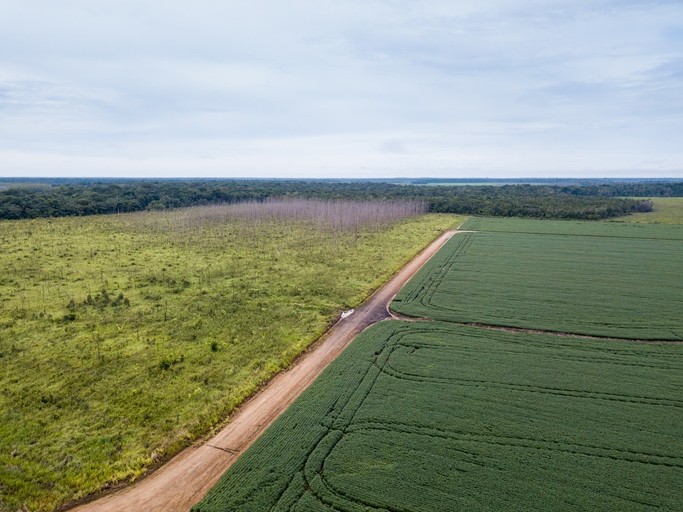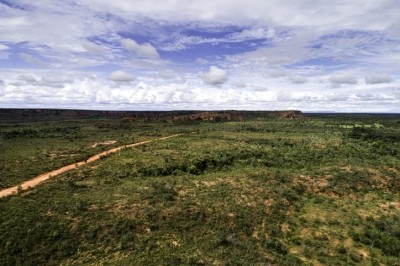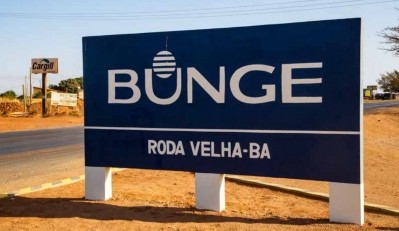Bunge: 'The legal right to deforest is not going to be part of our supply chains in 2025'

The US agribusiness giant is now able to monitor at least 64% of indirect volumes in the priority regions.
Rob Coviello, Bunge’s chief sustainability officer (CSO) and its government affairs lead, told us the company was able to achieve that level of verification due to an initiative it launched last year in Brazil: the Bunge Sustainable Partnership.
That large-scale effort it instigated in the Cerrado was aimed at tracking indirect soybean purchases by sharing knowledge, methodologies, and tools with resellers.
“For our direct supply chains, as far as monitoring and traceability of farms we purchase commodities from, we are at 100%, so we feel very good about where we are in relation to that, the next area we have been focusing on is the indirect supply chain,” said Coviello.
The program helps resellers implement supply chain verification systems, including satellite and farm-scale images. Dealers can adopt independent imaging services or use Bunge's geospatial monitoring structure at no cost.
“Investing in resellers has been part of our overall corporate strategy for a number of years and it has brought us multiple benefits – it has allowed us to grow with key farmers in high priority areas, it has also allowed us to collect sustainability information and to help influence the practices on the ground.”
Coviello said the target Bunge set for 2022 was at least 50% traceability of its indirect supply chain in the Cerrado – that has now been surpassed.
“We had thought that goal was quite ambitious but through the success of the partnership program and through leveraging our investments we were able to get to 64%, which is great, and we are really excited about it. But, like with anything to connected to sustainability, we can’t stop there. We must continue to innovate. That is why we recently announced that, within the partnership program, we are giving commercial benefits to our resellers who provide us with traceability data in their supply chain."
Whether it is through the use of monitoring technology or capitalizing on commercial partnerships, or both, such approaches continue to drive Bunge towards its 2025 non-deforestation commitment, he added.
Tracking progress
Bunge has also released its latest sustainability report: that looks to document how it is making headway toward its core deforestation metrics, its emission reduction targets and other goals. "We have included a lot more information in there than we have in the past, we want to highlight our progress to date, and what our plans are, but we are also trying to articulate where some of the challenges are going to be.”
Achieving its 2025 non-deforestation commitment will get Bunge more that 50% of the way towards its Scope 3 GHG emissions target, noted Coviello.
While Amazon deforestation is strictly limited to 20% of a farmer’s property, producers in some areas of the Cerrado can clear up to 80% of their land legally. But the CSO confirmed: “That legal right to deforest is not going to be part of our supply chains in 2025.”
Industry-wide action
Bunge spends a lot of time at the sectoral level trying to enact change, he continued, to get industry-wide solutions, tools, and financial schemes in place, with backing by government and local stakeholders, to ensure farmers have the commercial incentives necessary to change their practices, and expand their production sustainably.
Despite the headwinds posed by inflationary pressure, the war in Ukraine, and the COVID-19 pandemic, the CSO said that all the stakeholders Bunge engages with are resolute in their pursuit of the sustainability agenda.
He believes the company can play a significant role in transforming the industry: "We are constantly being pulled into the different discussions as we are seen as one of the sustainability leaders in agriculture, primarily driven by our 2025 non-deforestation commitments, but also our by our Science Based Targets (SBTs), some of the most ambitious in this space.”
Bunge is also seen as an actor that champions a collaborative approach, said the CSO. “In addition, what people see and appreciate is we are consistently making sure that we never lose sight of the farmer and the role they will need to play in [an evolving landscape].”








